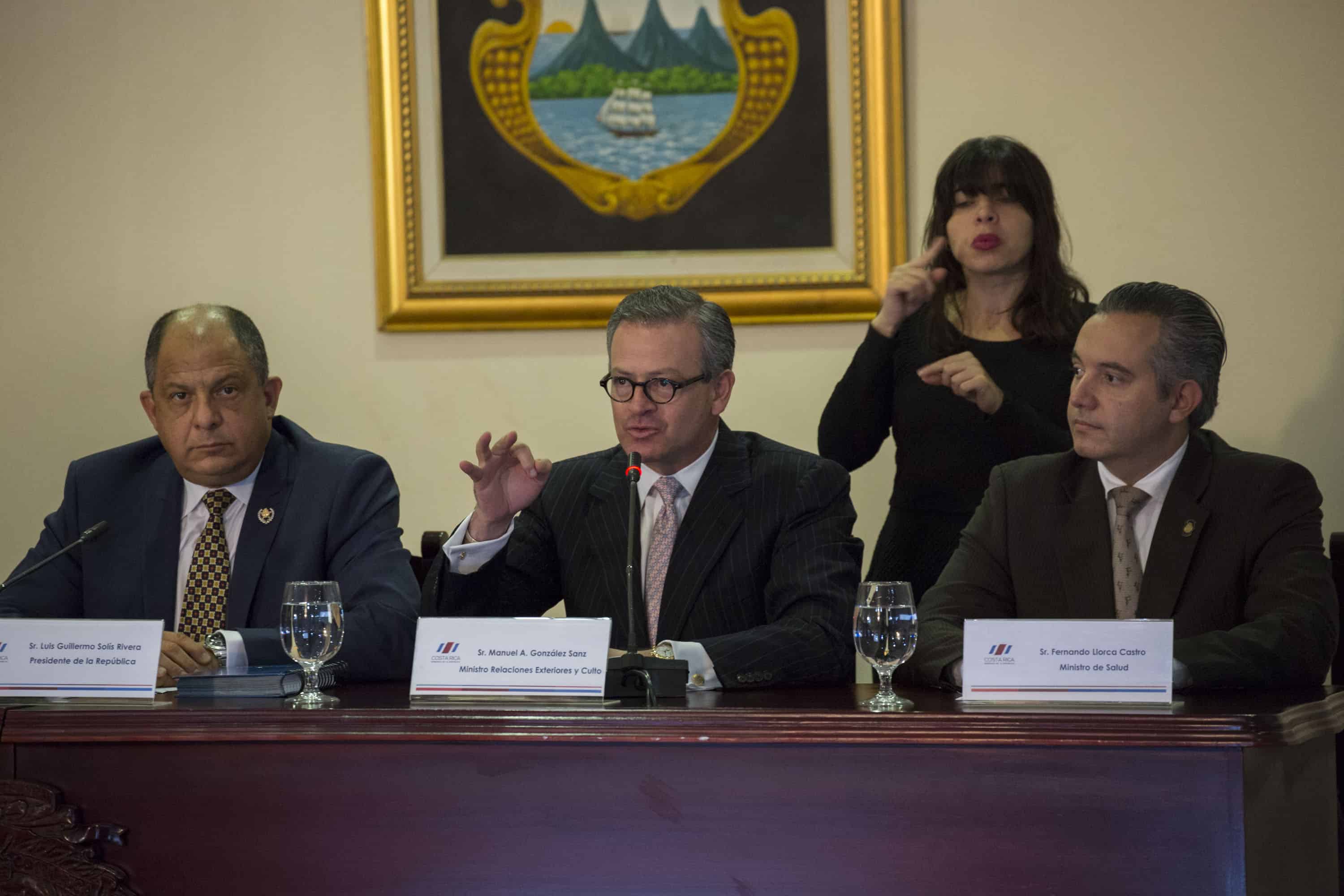As the first direct flights to Mexico of the ongoing Cuban migrant airlift take off Wednesday, the Costa Rican government finds itself on the defensive amid rumors of price fixing.
More than 230 migrants are scheduled to fly out on direct flights from Liberia’s Daniel Oduber International Airport to the border city of Nuevo Laredo, Mexico, effectively dropping Cuban migrants at the U.S. doorstop. On previous flights, migrants disembarked in El Salvador and then traveled by bus from San Salvador through Guatemala and into Mexico before reaching the U.S.
On Feb. 5, Costa Rican authorities announced a deal with the Mexican government allowing direct charter flights to Nuevo Laredo and Reynosa, Mexico, near the Texas-Mexico border, for the Cubans. The International Organization for Migration negotiated the flights’ price with the travel company Terranova.
Flights to Nuevo Laredo cost $805 for adults and $575 for children. Fights to Reynosa cost $750 per adult and $520 for children. Infants fly for $50 on both flights, according to the Foreign Ministry. Both flight packages include transportation from shelters in Costa Rica to the airport, the cost of the flight, health insurance, food, and transportation to the U.S. border once in Mexico.
Casa Presidencial vehemently denied rumors in Cuban migrant camps published by national media here that the government was involved in a price-fixing scheme to increase the price of the tickets. The exit package negotiated for migrants includes Costa Rica’s $29 exit tax, but government representatives denied that Costa Rica was manipulating or profiting from the airlift.
“The government of Costa Rica only facilitates. It does not set prices, receive money or make payments in the name of anyone and does not pay nor has the capacity nor the legal authority to pay these costs for the Cubans. This is their responsibility,” Foreign Minister Manuel González said in a statement Tuesday.
IOM also released a statement Tuesday, defending its bidding process. The IOM said that the only legal and safe travel option for Cubans to leave Costa Rica is the package negotiated by the governments of Costa Rica, El Salvador, Guatemala and Mexico. Any other alternative, despite promises of lower prices, “would put Cubans in irregular migration conditions and therefore, would be unsafe.”
Cuban migrants have been stuck in Costa Rica since November 2015 when Nicaragua closed its border to the migrants who were traveling without visas. During the long wait to legally leave Costa Rica and reach the U.S., there have been anecdotal reports of migrants leaving the temporary camps to try their luck with smugglers to reach the U.S.
According to the Foreign Ministry, there are two flights of Cuban migrants scheduled to El Salvador on Thursday totaling 328.






